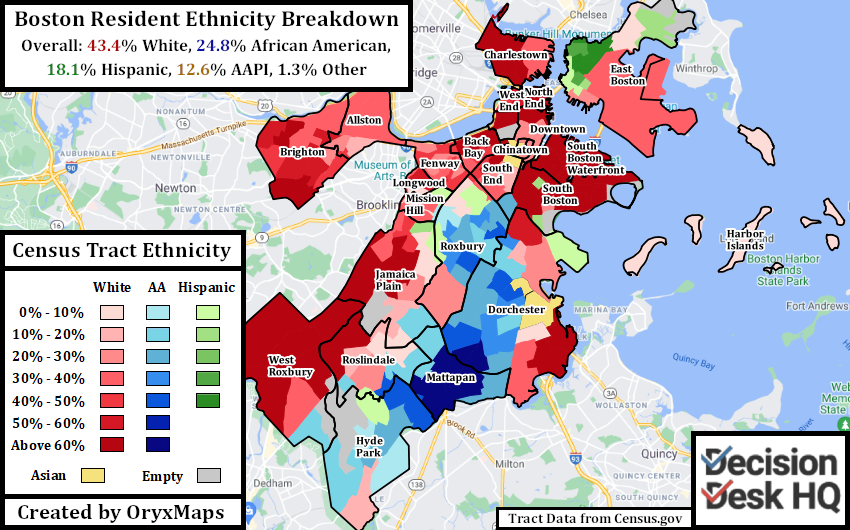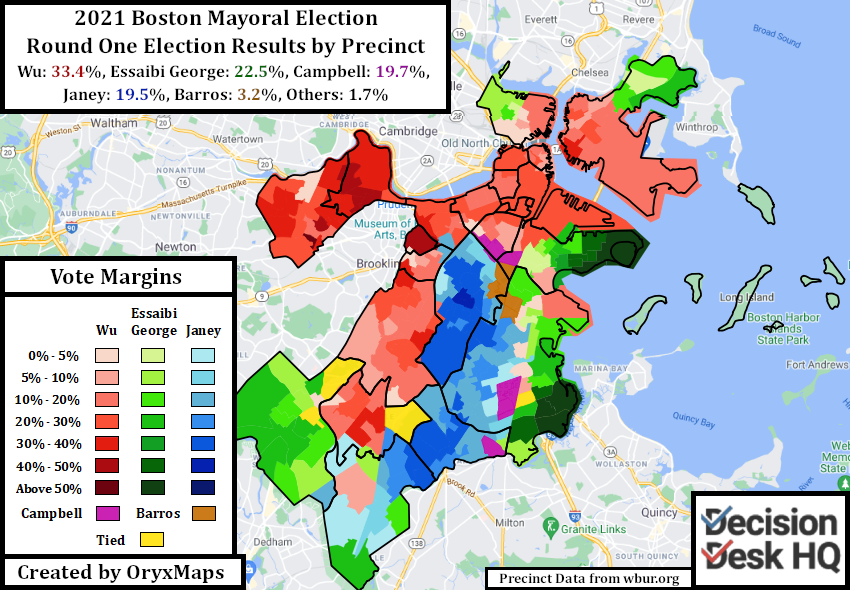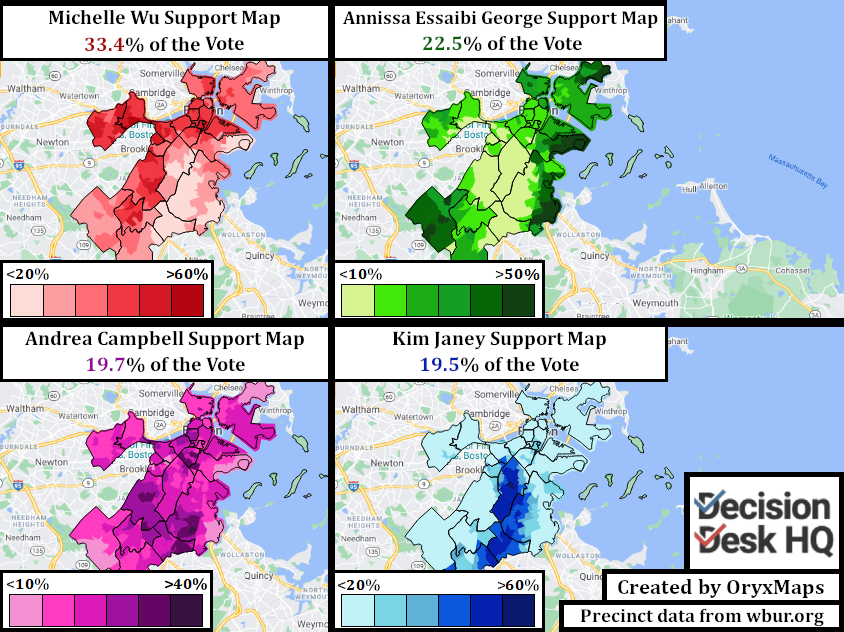Decision Desk HQ last examined the Boston Mayoral Election before the September 14th nonpartisan ‘primary’ election. We concluded that previous article stating that City Councilor Michelle Wu possessed a coalition that guaranteed her one of the two positions in the runoff, but speculated she could struggle to win the November runoff. The former occurred, but the latter has not happened. Michelle Wu retains a commanding position and is likely to become Boston’s next Mayor.
First-Round Discourse
In the September primary, Michelle Wu faced three opponents, each with viable paths to a runoff. They were acting Mayor Kim Janey, City Councilor Andrea Campbell and City Councilor Annissa Essaibi George. Despite the nonpartisan nature of the race, Wu and her opponents all identify as Democrats. All three challengers to Wu initially polled close to the same 20% result. Janey and Campbell are both African Americans and both had bases of support within different sections of Boston’s minority community. Essaibi George’s positions and base of support was the most distinct from Wu’s more progressive appeal.

In September it appeared likely that either Janey or Campbell would advance to the runoff. One would unite minority voters, win Essaibi George’s endorsement to stop Wu, and the combined bases would then outnumber Wu’s affluent White constituency. This did not happen. Essaibi George dominated her narrow slice of the electorate and advanced to the runoff.


Wu’s coalition of educated and upscale White voters easily topped precincts across the affluent North and West of the city, allowing her to outpace her rivals by more than 11%. African American and Hispanic voters divided their votes almost evenly between Campbell, Janey and minor candidate John Barros. These divisions allowed Essaibi George’s coalition of established, home-owning White voters in South Boston and West Roxbury to carry her to second place.
The November Runoff
Essaibi George was the candidate for the older and less college-educated Italian and Irish subsections of the city that once defined Boston’s identity. Boston has however changed significantly in the last 50 years, and most individuals associated with these demographics now live in the sprawling suburbs to Boston’s north and south. The identities and positions of those that remain inside the city are increasingly isolated from the rest of their urban neighbors. A viable Essaibi George candidacy required her to reach beyond this community and incorporate the minority communities previously represented by Janey and Campbell into her campaign. This would not happen.
Janey and her supporters within the Latino and African American communities backed Wu. Prominent Democrats who remained on the sidelines during Round One consolidated behind Wu as her victory began to appear inevitable. This includes support from Boston Representative Ayanna Pressley, Senator Ed Markey, and former Governor Deval Patrick.
Wu’s rapid ascent suffocated any opportunity for a consequential Essaibi George candidacy. October polls found that Michelle Wu doubled her support among the electorate from 33% in Round One to over 60% going into the runoff election. Essaibi George was only able to increase her support from 22.5% to slightly over 30%.
Wu is likely to win every neighborhood except the handful of scattered outlying areas that Essaibi George dominated during Round One. Boston voters will deliver a landslide for Michelle Wu, anything less will be an unforeseen statistical upset.
Ben Lefkowitz (@OryxMaps) is a Contributor to Decision Desk HQ.
This analysis was written by Benjamin Lefkowitz independently of any third-party organization. All views, opinions, and analyses are those of the author.